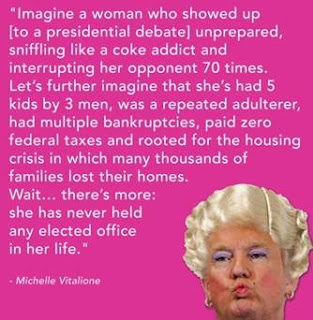How did Adolf Hitler — described by one eminent magazine editor in 1930 as a "half-insane rascal," a "pathetic dunderhead," a "nowhere fool," a "big mouth" — rise to power in the land of Goethe and Beethoven? What persuaded millions of ordinary Germans to embrace him and his doctrine of hatred? How did this "most unlikely pretender to high state office" achieve absolute power in a once democratic country and set it on a course of monstrous horror?
A host of earlier biographers (most notably Alan Bullock, Joachim Fest and Ian Kershaw) have advanced theories about Hitler's rise, and the dynamic between the man and his times. Some have focused on the social and political conditions in post-World War I Germany, which Hitler expertly exploited — bitterness over the harsh terms of the Treaty of Versailles and a yearning for a return to German greatness; unemployment and economic distress amid the worldwide Depression of the early 1930s; and longstanding ethnic prejudices and fears of "foreignization."
Other writers — including the dictator's latest biographer, the historian Volker Ullrich — have focused on Hitler as a politician who rose to power through demagoguery, showmanship and nativist appeals to the masses. In "Hitler: Ascent, 1889-1939," Mr. Ullrich sets out to strip away the mythology that Hitler created around himself in "Mein Kampf," and he also tries to look at this "mysterious, calamitous figure" not as a monster or madman, but as a human being with "undeniable talents and obviously deep-seated psychological complexes."
"In a sense," he says in an introduction, "Hitler will be 'normalized' — although this will not make him seem more 'normal.' If anything, he will emerge as even more horrific."
This is the first of two volumes (it ends in 1939 with the dictator's 50th birthday) and there is little here that is substantially new. However, Mr. Ullrich offers a fascinating Shakespearean parable about how the confluence of circumstance, chance, a ruthless individual and the willful blindness of others can transform a country — and, in Hitler's case, lead to an unimaginable nightmare for the world.
Mr. Ullrich, like other biographers, provides vivid insight into some factors that helped turn a "Munich rabble-rouser" — regarded by many as a self-obsessed "clown" with a strangely "scattershot, impulsive style" — into "the lord and master of the German Reich."
• Hitler was often described as an egomaniac who "only loved himself" — a narcissist with a taste for self-dramatization and what Mr. Ullrich calls a "characteristic fondness for superlatives." His manic speeches and penchant for taking all-or-nothing risks raised questions about his capacity for self-control, even his sanity. But Mr. Ullrich underscores Hitler's shrewdness as a politician — with a "keen eye for the strengths and weaknesses of other people" and an ability to "instantaneously analyze and exploit situations."
• Hitler was known, among colleagues, for a "bottomless mendacity" that would later be magnified by a slick propaganda machine that used the latest technology (radio, gramophone records, film) to spread his message. A former finance minister wrote that Hitler "was so thoroughly untruthful that he could no longer recognize the difference between lies and truth" and editors of one edition of "Mein Kampf" described it as a "swamp of lies, distortions, innuendoes, half-truths and real facts."
• Hitler was an effective orator and actor, Mr. Ullrich reminds readers, adept at assuming various masks and feeding off the energy of his audiences. Although he concealed his anti-Semitism beneath a "mask of moderation" when trying to win the support of the socially liberal middle classes, he specialized in big, theatrical rallies staged with spectacular elements borrowed from the circus. Here, "Hitler adapted the content of his speeches to suit the tastes of his lower-middle-class, nationalist-conservative, ethnic-chauvinist and anti-Semitic listeners," Mr. Ullrich writes. He peppered his speeches with coarse phrases and put-downs of hecklers. Even as he fomented chaos by playing to crowds' fears and resentments, he offered himself as the visionary leader who could restore law and order.





 384
384












